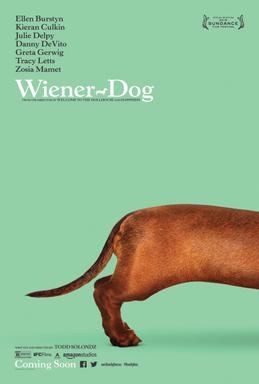Search This Blog
Sunday, July 31, 2016
The Rapture (1991)
Cafe Society (2016)
Saturday, July 30, 2016
Twilight's Last Gleaming (1977)
Friday, July 29, 2016
Ship Of Fools (1965)
Thursday, July 28, 2016
Juninatten (aka June Night) (1940)
After she is shot by her lover (Gunnar Sjoberg) and a scandal evolves due to the trial and the tabloid press, a young woman (Ingrid Bergman) flees the small town and heads for Stockholm where she hopes she will be swallowed up in anonymity and start a new life. In her last Swedish film before relocating to Hollywood, Bergman is luminous and already gives the kind of assured performance and screen presence that would soon make her one of the most popular stars of the 1940s. As for the film itself, her character isn't very likable. She seems quite knowledgeable about her flaws and her ability to manipulate and she's not very sympathetic, even repaying a great kindness shown her by a woman (Marianne Lofgren) by stealing away her fiance (Olof Widgren) though frankly, he doesn't seem worth stealing. In fact, they deserve each other. Still, the movie's view of romanticism seems ambiguous. I'm not quite sure that we're supposed to take the lovers running off as a "happy ending". While Bergman is excellent, she's not the whole show and the supporting players are quite good. Directed by Per Lindberg. With Marianne Aminoff, Lill Tollie Zellman and Hasse Ekman.
Wednesday, July 27, 2016
The Seventh Sin (1957)
In 1949 Hong Kong, when a doctor (Bill Travers, BORN FREE) discovers his wife (Eleanor Parker) is having an adulterous affair with a married man (Jean Pierre Aumont) he gives her an ultimatum. He'll give her a divorce if her lover leaves his wife for her or else she must accompany him to a remote Chinese village where a cholera epidemic is spreading or he'll cause a scandal. Her lover refuses to leave his wife which sets the stage for a story of redemption. Based on the 1925 novel THE PAINTED VEIL by W. Somerset Maugham, this is the second film version. It was previously filmed in 1934 with Greta Garbo and once again in 2006 with Naomi Watts. There's a good performance by Parker and the film stays with the unhappy ending unlike the 1934 film. The film's attitudes are a bit dated ("It's a woman's duty to please her husband") but it is set in 1949 and the film's final moments are beautifully handled. But the production never quite becomes more than a decent "woman's picture" as they were referred to back then. Directed by Ronald Neame (PRIME OF MISS JEAN BRODIE) but reputedly finished by Vincente Minnelli after Neame left the project. Another good score by Miklos Rozsa. With George Sanders (wonderful as always), Francoise Rosay, Ellen Corby and James Hong.
Tuesday, July 26, 2016
The Life Of Emile Zola (1937)
Gothic (1986)
In the summer of 1816, Lord Byron (Gabriel Byrne) invites fellow poet Percy Shelley (Julian Sands), his lover (Natasha Richardson) and her stepsister (Miriam Cyr) to join him at his villa in Switzerland. It is there on a dark and stormy night that they let their imaginations run wild and experience hallucinatory horrors. Ken Russell at his excessive worst though it's not nearly as bad as THE MUSIC LOVERS. Russell seems to confuse grossing us out with genuine horror. We're subjected to characters abusing themselves (a character repeatedly slams his hand through a nail then licks the blood), vomiting and spewing out food, maggots and leeches, dead fetuses, crawling on all fours in the mud with a dead rat in your mouth etc., you get the picture? One can't help but feel sorry for the actors humiliating themselves for something that's ultimately utterly silly. Timothy Spall as Dr. Polidor fares the worst though it seems a dummy was used for one of the more revolting acts. Still, you have to hand it to Russell, it's the kind of compelling bad movie you can't take your eyes off. The anachronistic unpleasant underscore is by Thomas Dolby.
Operetta Tanuki Goten (aka Princess Raccoon) (2005)
Monday, July 25, 2016
A Caribbean Mystery (1983)
Sunday, July 24, 2016
Four Guns To The Border (1954)
Four bandits (Rory Calhoun, George Nader, John McIntire, Jay Silverheels) plot to rob a bank and then split the money once they cross the border. But a young girl (Colleen Miller) and her ex-gunslinger father (Walter Brennan) put a crimp in their plans. Based on IN VICTORIO'S COUNTRY by the western writer Louis L'Amour and directed by the actor Richard Carlson (CREATURE FROM THE BLACK LAGOON), this is your standard 1950s Universal western that connects all the dots accordingly. Two elements stand out, however. The female characters (Nina Foch and Mary Field are the other two) are all strong women with minds of their own. The second is the sexual tension between Calhoun and the lovely Miller. Specifically, a scene taking place on a hot and humid rainy night as Miller in her underwear gets soaked to the skin and Calhoun (also soaked to the skin) attempts to take her and the passive aggressive "love" scene that follows which has an eroticism that seems out of place in a routine western. Russell Metty did the lensing. With Charles Drake and Nestor Paiva.
Le Notti Bianche (aka White Nights) (1957)
Absolutely Fabulous: The Movie (2016)
Drunk and coked up as ever, PR agent Edina (Jennifer Saunders) and her parasitic pal Patsy (Joanna Lumley) attend a swank affair. But when Edina pushes fashion icon Kate Moss (as herself) into the Thames, the pair flee to the French Riviera to avoid the police who want her for Moss's murder. If you've never seen the TV series the film is based on, most likely the entire film will go right over your head but for fans of the show, this is a real treat! Into their 60s, Edina and Patsy are as irresponsible and self centered as ever but who would want them any other way. Everyone's back including Julia Sawalha as Edina's put upon daughter, June Whitfield as her clueless mother and the whole gang. All older but no wiser! Saunders' screenplay is really an extended episode of the show but the laughs are plenty and the director Mandie Fletcher never lets the pacing lag. I had a good time at it and ready to drag out the series and binge watch. The huge cast includes Jon Hamm, Joan Collins, Rebel Wilson, Dame Edna Everage, Lulu, Jane Horrocks, Graham Norton, Stella McCartney, Barry Humphries, Kathy Burke, Celia Imrie, Chris Colfer (GLEE) and Robert Webb.
Saturday, July 23, 2016
The Great Gatsby (1974)
Friday, July 22, 2016
Point Blank (1967)
After he has been double crossed and shot by his partner (John Vernon) after they've committed a robbery, a man (Lee Marvin) survives his wounds and seeks revenge. Based on the novel THE HUNTER by Richard Stark and directed by John Boorman (DELIVERANCE). The film is an exercise is nihilistic swank and possibly the closest an American crime film has come to Jean Pierre Melville's stylish French gangster films. One shouldn't look for depth of meaning in something like this when it's all about style and when the style is this good, what else matters? Some have suggested that the entire film is a dream but I don't buy it. Boorman and his editor Henry Berman have taken a genre piece and permeated it with observational languor and chic stoicism and the film fairly drips with a sort of bleak romanticism. Remade poorly in 1999 as PAYBACK. With Angie Dickinson (her slapdown of Marvin is a film highlight), Keenan Wynn, Carroll O'Connor, Sharon Acker, Lloyd Bochner, James Sikking, Kathleen Freeman and Roberta Haynes.
Brigadoon (1954)
A New Yorker (Gene Kelly) vacationing with his best friend (Van Johnson) in Scotland gets lost in the Highlands and come across a small village that seems out of step with time. And for good reason ..... it comes alive only every 100 years! Based on the 1947 hit musical with songs by Lerner & Loewe (MY FAIR LADY), the director Vincente Minnelli wanted to shoot the film on actual Scottish locations but MGM decided it was to be shot on the MGM sound stages instead. I think MGM was right. This is a whimsical fairy tale, not a realistic musical, and the obvious recreations of the Highlands on a massive sound stage only adds to the film's ethereal quality. You'd never know this was Minnelli's first film in the newly arrived CinemaScope format as he composes the framing like a master, particularly the wedding sequence. On the downside, the Scottish whimsy gets tired very quickly and one is grateful for the one liners of Van Johnson's cynical unbeliever which provide an alternative to the treacle. I guess I'm rather schizophrenic about the film. On one hand I'm charmed by it but on the other hand, its preciousness grates on my nerves. But the songs are good and Kelly's choreography is first rate. With Cyd Charisse, Elaine Stewart, Barry Jones, Albert Sharpe, Dody Heath and Virginia Bosler.
Thursday, July 21, 2016
Flirting With Disaster (1996)
Wednesday, July 20, 2016
Pal Joey (1957)
A down and out singer (Frank Sinatra) finds himself penniless in San Francisco and cons his way into a job in a seedy nightclub. It isn't long before he attracts the attention of a wealthy socialite (Rita Hayworth) and he joins forces with her to open his own nightclub. Based on the 1940 Broadway musical (which made Gene Kelly a star) with a book by John O'Hara and the songs by Rodgers & Hart. The film version, directed by George Sidney (THE HARVEY GIRLS), makes substantial changes including ditching much of the original songs and replacing them with better known Rodgers & Hart standards. It also cleans up the character of Joey, who is a total heel in the stage musical but the film gives him a conscience and the movie a happy ending. If there is one stage musical that needs to be remade properly, it's PAL JOEY. That being said, there's much to enjoy in this bowdlerized version, namely Sinatra. When he sings I Could Write A Book or The Lady Is A Tramp, you know what bliss is. Kim Novak's performance is awkward but there's a sweetness about her that overrides that but Hayworth seems ill at ease in a role that would seem to fit her like a glove. With Barbara Nichols, Bobby Sherwood, Hank Henry and Betty Utey.
L'Inhumaine (1924)
Tuesday, July 19, 2016
Casbah (1948)
Pepe Le Moko (Tony Martin) is the head of a gang of jewel thieves in the Casbah section of Algiers. He can't leave the Casbah (where his friends protect him) because the police are waiting to arrest him and deport him to France. But when he falls in love with a tourist (Marta Toren), he's willing to risk it all for love. Based on the 1938 film ALGIERS which in turn was based on the French film PEPE LE MOKO (1937), this is a musical version of the story. On the plus side, the songs by Harold Arlen and Leo Robin are good, the Katherine Dunham choreography is effective and the film is interesting in that it makes no attempt to lighten up the darker aspects of the plot. How many 1940s Hollywood musicals do you know that feature murder, thievery, betrayal, deceit and an unhappy ending? On the down side, the casting of the bland Tony Martin as Pepe prevents the film from being anything more than a compromised effort. Jean Gabin or Charles Boyer (the other Pepe Le Mokos) he's definitely not! Worth a look at least once though. Directed by John Berry, who became a victim of the HUAC blacklist. With Yvonne De Carlo (wasted), Peter Lorre (who steals the film), Hugo Haas, Douglas Dick, Thomas Gomez, Herbert Rudley, Virginia Gregg and Katherine Dunham.
Monday, July 18, 2016
The Lion In Winter (2003)
Sunday, July 17, 2016
The Bride Of Frankenstein (1935)
The Dressmaker (2015)
In 1951, a young woman (Kate Winslet) returns from Paris to the squalid small town in the Australian outback she grew up in. She was sent away under mysterious circumstances and now she has returned to find the town hasn't changed, it's still as nasty and petty as ever. Hell hath no fury and revenge can be sweet! Based on the novel by Rosalie Ham and directed by Jocelyn Moorhouse, this may well be the best revenge movie since Clint Eastwood's HIGH PLAINS DRIFTER (1973). Curiously, it opened last year in some parts of the world like Australia (winning several awards including best actress for Winslet) and Great Britain and earlier this year in Spain and Italy without playing the U.S. It's scheduled to open here in September. I hope it does well because it's a splendid mix of black comedy and heartbreaking drama with Winslet once again showing why she's one of the best actresses of her generation. Moorhouse, who co-wrote the script with her husband P.J. Hogan (MURIEL'S WEDDING), gives the movie a smart unsentimental push without once going all Oprah "Forgiveness is giving up the hope that the past could have been any different" Winfrey on us. With Judy Davis in a killer performance as Winslet's dotty mother, Liam Hemsworth, Hugo Weaving and Caroline Goodall.
Saturday, July 16, 2016
Lucy Gallant (1955)
In 1941 Texas, the oil boom is at its height in a small town that will soon become a big town. A stranded New Yorker (Jane Wyman) sees an opportunity to build her own empire in fashion even though a local rancher (Charlton Heston) is more interested in making her his Mrs. Based on the novel LIFE OF LUCY GALLANT by Margaret Cousins and directed by Robert Parrish (CRY DANGER), this is an uneasy mixture of Edna Ferber (think GIANT) and a glossy Ross Hunter Universal production (it's Paramount film). For two hours, we're subjected to the "will they or won't they" plot but there's an unpleasant undertaste. This being the mid 50s, an independent unmarried woman building a successful career is still looked upon as some sort of freak for not having a man. The film's ending is ambiguous but at least Wyman's performance suggests that it will take more than being a housewife to make her happy. With Claire Trevor, Thelma Ritter (looking quite glamorous for a change), William Demarest, Gloria Talbott, Wallace Ford, Tom Helmore, Mary Field and as her self, Edith Head.
Friday, July 15, 2016
Ghostbusters (2016)
After being fired from Columbia University when its discovered she co-wrote a book on ghosts, a professor (Kristen Wiig) rejoins her former colleague (Melissa McCarthy) in studying paranormal phenomenon. It isn't long before ghosts are found underground in the New York subway but their documentation is dismissed by the media. Based on the 1984 film and directed by Paul Feig, this all female (Kate McKinnon and Leslie Jones are the other two) reboot was notorious before it even opened when a nerd apocalypse occurred on the internet before filming even started and misogynistic fanboys of the original decried their beloved "classic" being debased. Let's face it, the original GHOSTBUSTERS was fun but it was hardly a piece of important cinema. So how how is the reboot? I had a good time at it and I found it not only funnier than the original but it also provided some genuine scares (which the original didn't have). The four comediennes are among the best in the business and they're all in fine form here but the film is stolen by Chris Hemsworth as the male equivalent of the "dumb blonde", his character an amalgamation of the first film's two female roles. A pleasant summer diversion. With Bill Murray, Sigourney Weaver, Dan Aykroyd, Ernie Hudson, Annie Potts, Charles Dance, Andy Garcia and Cecily Strong.
The Trial (1962)
A government bureaucrat (Anthony Perkins) in what appears to be a totalitarian state is placed under an open arrest by the authorities. But he is never told what his crime is or what he is being accused of and thus begins a nightmarish journey to fight the corrupt system and clear his name. Based on the classic novel by Franz Kafka and adapted for the screen and directed by Orson Welles. This is a remarkable film and stands with Welles' best work. Filmed in (what was then) Yugoslavia in B&W, Welles and his ace cinematographer Edmond Richard (DISCREET CHARM OF THE BOURGEOISIE) and art director Jean Mandaroux have created a nightmarish landscape of shadows and light, ominous architecture and an unsettling atmosphere of paranoia. I would have preferred it if Welles had kept the ending of Kafka's novel rather than the slight change but that's a minor quibble. Perkins is letter perfect in the role, his anxious demeanor practically screaming out guilt and since we never find out what his crime is can we be sure of his innocence? Welles considered THE TRIAL his best film and I'm not about to put up an argument. The large cast includes (in addition to Welles himself): Jeanne Moreau, Romy Schneider, Akim Tamiroff, Elsa Martinelli, Michael Lonsdale, Suzanne Flon and William Chappell.
Thursday, July 14, 2016
Lady Of The Tropics (1939)
Wednesday, July 13, 2016
Peggy Sue Got Married (1986)
Tuesday, July 12, 2016
The Trip (1967)
A television commercial director (Peter Fonda) in the midst of a divorce from his wife (Susan Strasberg) takes his first LSD trip under the watch of a "guide" (Bruce Dern). The film follows his psychedelic journey through the following morning. Written by Jack Nicholson (yes, the actor) and directed by Roger Corman. Unlike another American International youth exploitation film WILD IN THE STREETS (1968) which was a satire (and a good one), today THE TRIP plays out like a satire in spite of itself. We get "Wow!", "Groovy!" and lines like "Man, I can see right through to my brain" and "I wish there were a hip way of telling you this, baby!" so you just can't help yourself from grinning. Still, I'm glad films like this exist even if they're not very good because they encapsulate a specific period in our history. Fonda is pretty dreadful here but it's not the kind of film where the acting matters much. It's essentially an LSD trip for those who don't want to take LSD and see what it's like and the film places its emphasis on imagery. It's a like a full length feature film of the Jupiter And Beyond sequence in 2001 A SPACE ODYSSEY. A lot of the "trip" looks like outtakes from Corman's Poe films. The score by The American Music Band is very good. With Dennis Hopper, Luana Anders, Dick Miller, Salli Sachse, Michael Blodgett and in the film's most memorable scene, Barboura Morris as the lady in the laundromat.
My Little Chickadee (1940)
After being run out of town by its "good" citizens, a woman (Mae West) fakes a marriage to a con man (W.C. Fields) to gain respectability. At their new town, he's elected sheriff and she continues her affair with the masked bandit who got her kicked out of the first town. One would think that the one and only teaming of two comedy legends should give off sparks and laughs but this is a rather anemic affair. West was 46 and looking more matronly than sexy and the Production Code kept her hands tied when it came to her brand of bawdy humor. She does have one good scene though when she substitute teaches a class of unruly boys. As for Fields, comedy being subjective and all that, his appeal has always escaped me and this film didn't do anything to change my opinion. West and Fields both get credit for the movie's screenplay though reputedly, they didn't get along during the filming. Directed by Edward F. Cline whose job must have been a headache directing these two or at least trying. With Margaret Hamilton, Dick Foran, Joseph Calleia, Donald Meek, Ruth Donnelly and Fay Adler.
Monday, July 11, 2016
The Long Haul (1957)
Set in Liverpool, an American ex-GI (Victor Mature) wants to return to America but his English wife (Gene Anderson) insists they remain in Great Britain. His job as a trucker involves him with a racketeer (Patrick Allen) whose illegal ways and mistress (Diana Dors) will soon get him in plenty of hot water. Based on the novel by Mervyn Mills and directed by Ken Hughes (CHITTY CHITTY BANG BANG), who also wrote the screenplay. Though not quite in their class, this is a surprisingly taut thriller with thematic ties to such American films as THEY DRIVE BY NIGHT and THIEVES HIGHWAY. It's strong stuff and allows both Mature and Dors a chance to do a bit of acting instead of relying on their physiques. The film's highlight is a tense truck trek (hence the film's title) over a dangerous mountain route to the sea. A programmer to be sure but worth a look see. With Peter Reynolds and Liam Redmond.
Bulldog Drummond (1929)
Don Juan Ou Si Don Juan Etait Une Femme (1973)
A woman (Brigitte Bardot) who considers herself the reincarnation of the famous 17th century lover Don Juan makes it her mission to seek out men and destroy them. But she may have taken things too far and feels the need to confess to a priest (Mathieu Carriere). Directed by Roger Vadim, this was his fifth film starring Bardot, his former wife. It's a rather silly muddle of a film. At this stage of her career, Bardot was getting a bit too old to play the sex kitten and the film seems an aimless excuse for Bardot engage in various "shocking" sexcapades au naturel like the girl on girl action with Jane Birkin or her seduction of the priest (who also happens to be her cousin) on a fur rug. Ridiculously as if this were a 1940s Warners melodrama, Bardot must pay for her sins in a fiery finale. Frankly, I can't feel too sorry for the guys whose lives she messes up. They're either male chauvinists, cheaters or weaklings. For Bardot fans only. With Maurice Ronet, Robert Hossein, Michele Sand and Robert Walker Jr.
Sunday, July 10, 2016
Nie Yin Niang (aka The Assassin) (2015)
Set in 18th century China during the waning years of the Tang dynasty, a young woman (Shu Qi) who has been trained since she was a child to be an assassin is given the assignment by her mentor (Fang Yi Sheu) to kill her cousin (Chang Chen) as a test of her mettle. Directed by the great Hou Hsiao-Hsien, who the won best director award at the Cannes film festival for his work here. My initial reaction was one of disappointment, the film seemed so slight and when it was over I couldn't help thinking "Is that it?". But I've come to the conclusion that its very simplicity is what makes it so unique. On a visual level, the film is simply stunning with Ping Bin Lee's painterly cinematography giving us images worthy of hanging in a museum. While its languid pacing may seem at odds with a martial arts movie, it's clear Hou Hsiao-Hsien wasn't interested in making a pure martial arts action movie and what he provides is more aesthetic and the movie's ultimate message is satisfying. The film is shot in both color and B&W and is mostly in the 1.37 aspect ratio though a few scenes are shot in wide screen.
Diamond Head (1962)
In 1959 Hawaii, statehood has just been acquired and a land baron (Charlton Heston) is being pushed to run for congress as a Senator. But the homefront becomes a battlefield when his Chinese mistress (France Nuyen) is carrying his child and he objects to his sister (Yvette Mimieux) marrying a native Hawaiian (James Darren) for race reasons. Based on the novel by Peter Gilman, the screenplay makes considerable changes from the novel. In the book, it's Mimieux's father who is running for congress but the film eliminates him and instead merges him into the character of the brother and there's an implied incestuous connection on his part which is quite daring for 1962. Much of the book's political narrative has been toned down too. What remains is an entertaining soap opera, the kind of stuff Hollywood did well before television appropriated the genre with shows like DALLAS and DYNASTY. Indeed, Heston's character can be viewed as JR Ewing, Hawaiian style. The ending seems abrupt as if the film makers suddenly realized they had to end it before it went over the 2 hour mark. Director of photography Sam Leavitt (ANATOMY OF A MURDER) does justice to the islands of Oahu and Kauai (my birthplace) and there's a nice early score by John Williams (billed as Johnny). Directed by Guy Green. With George Chakiris, Aline MacMahon and the underrated Elizabeth Allen (DONOVAN'S REEF).
Saturday, July 9, 2016
The Shout (1978)
Friday, July 8, 2016
Possession (1981)
Returning home from a "mission" (perhaps some sort of espionage), a man (Sam Neill) finds his wife (Isabelle Adjani) having some sort of violent breakdown and he suspects she has been unfaithful. But it isn't long before he too succumbs to this mysterious "illness". Directed by Andrzej Zulawski, this is a divisive film. There are those who loathe it and find it pretentious and silly while others find it audacious and stimulating and pushing the envelope. On one level, it's a portrait of a marriage unraveling in a chaotic world where nothing makes sense anymore and on another level, it's a horror film (not unlike Cronenberg's THE BROOD) where evil manifests itself physically from repression. Don't expect realism. The characters seem to exist in a parallel universe, a bleak sparsely populated city and the dialog is stilted which only adds to the other worldly atmosphere. I have rarely seen two actors so committed to their roles as Adjani, who won the Cannes film festival best actress award as well as the Cesar (the French Oscar) for her performance here, and Neill. They go all out and their risk taking pays off. It's truly a one of a kind experience but definitely not for everyone. With Heinz Bennent, Margit Carstensen and Johanna Hofer.
Thursday, July 7, 2016
Shooting Stars (1928)
The Lady Takes A Flyer (1958)
A pilot (Jeff Chandler) meets up with a flyer pal (Richard Denning) from WWII. When introduced to his friend's fiancee (Lana Turner), who's also a pilot, he falls in love. But after they're married and have a baby, she wants him to settle down and take a desk job which he refuses to do and that spells trouble. Directed by Jack Arnold (CREATURE FROM THE BLACK LAGOON), this romantic drama with some comedic overtones is more heavy handed than it needs to be. While both Turner and Chandler have a strong screen presence which works to the film's benefit, they weren't stars for nothing, ultimately neither have the light touch that the roles require to make it work. But the material is weak under the best of circumstances so in the end I suppose it doesn't matter. Arnold does manage to generate some suspense during the film's finale as Turner has to land a plane blind in heavy fog. With Chuck Connors, Andra Martin and Reta Shaw.
Wednesday, July 6, 2016
The Eagle And The Hawk (1933)
In WWI, an American pilot (Fredric March) is assigned to the reconnaissance section in France where it's his job to get photographs behind enemy lines. But as he sees the death of so many of his comrades including the gunners who fly with him, he begins to crack up. Directed by Stuart Walker, this pre-code war film is seemingly and openly anti-war in its sentiments which makes the ironic conclusion a bit of a mixed message. The film manages to avoid the usual war movie cliches and there's a very effective performance by March as the flyer who becomes more cynical about war and bravery until he spirals into an alcoholic depression. For a movie about WWI pilots, there's precious little aerial sequences (unlike WINGS or HELL'S ANGELS) but I suppose Walker preferred to concentrate on characterization rather than visuals. There's also a neat performance by a pre-stardom Cary Grant as a gunner with a huge chip on his shoulder and Carole Lombard shows up for about 5 minutes as a society beauty who has a dalliance with March. With Jack Oakie as the unnecessary comic relief and Sir Guy Standing.
Valley Of The Kings (1954)
Tuesday, July 5, 2016
Wolf (1994)
The chief editor (Jack Nicholson) of a major New York publishing house is bitten by a wolf that he hits with his car on his way home from Vermont. He begins to feel ill for awhile but suddenly he notices that his sense of smell and his eyesight are improved and that he feels more vital than he has in years. Directed by Mike Nichols from an original screenplay by Jim Harrison and Wesley Strick, the narrative may sound like a horror movie but that's not what Nichols gives us. He holds back as if giving us a true horror movie is beneath him so he gussies it up with swank and good taste. Jim Harrison, a novelist, hated what Nichols did with his script and vowed never to work in Hollywood again and kept his word until his death early this year. Nichols' "good taste" works against the film in just about every way and watching a paunchy Nicholson growing face hair and growling and snarling as he runs in the woods after a deer is more silly than terrifying. On the other hand, James Spader (in the film's best performance) as Nicholson's backstabbing nemesis doesn't need the wolf make up to make our skin crawl. The cinematography by Giuseppe Rotunno is top notch and Ennio Morricone's score tries to whip up some suspense to no avail. With Michelle Pfeiffer, Christopher Plummer, Kate Nelligan, Richard Jenkins, Eileen Atkins, David Hyde Pierce, Allison Janney and David Schwimmer.
Monday, July 4, 2016
The Clock (1945)
During WWII, a young soldier (Robert Walker) gets two days leave which he takes to visit New York City for the first time. He meets a young secretary (Judy Garland) and they spend the next 48 hours together as love blooms. Quite simply, one of the best romance movies ever made! Vincente Minnelli and Garland had just done MEET ME IN ST. LOUIS the year before and this was Garland's first film in which she was used strictly as an actress, she doesn't sing a note. Working from a script by Robert Nathan and Joseph Schrank, Minnelli does a wonderful job of keeping the simple love story from becoming cloying or sappy and the Manhattan setting recreated on the MGM back lot is stunning. Say what you will about MGM, their production designers and art directors were untouchable in the studio system. Garland and Walker have such a genuine chemistry and sweetness together that we're pulling for them all the way and the sequence when they lose each other for a several hours in the big city is as nerve wracking as a Hitchcock thriller. George Bassman is responsible for the gorgeous score. With Keenan Wynn, James Gleason, Marshall Thompson, Moyna MacGill and Ruth Brady.
Per Qualche Dollaro In Piu (aka For A Few Dollars More) (1965)
Sunday, July 3, 2016
Weiner-Dog (2016)
A dachshund found in an animal shelter takes a journey through four different owners: a boy (Keaton Nigel Cooke) fighting cancer with insensitive parents (Julie Delpy, Tracy Letts), a girl (Greta Gerwig) with low self esteem who runs off with a junkie (Kieran Culkin), a depressed failed screenwriter (Danny DeVito) who puts the dog in a yellow dress and attaches a bomb to it and finally a bitter dying old woman (Ellen Burstyn). So if you were expecting a warm and fuzzy dog movie for the whole family, forget about it. The director is Todd Solondz, so you know this is going to be a dark and cynical tale. The second story ends on a glimmer (a very small one) of hope but the others are real downers and Solondz saves the cruelest fate of all for the dog and if that's not enough, he rubs our faces in it. Oh, I should mention I loved every minute of this movie! Clearly Solondz has an affection for his messy screwed up characters but he refuses to sentimentalize them, though there is a rather touching scene between Culkin and his Down Syndrome brother (Connor Long). If you're an optimist, then this movie isn't for you but for those of us with a darker nature, it's a journey well taken.
The Caine Mutiny (1954)
In WWII, a young and inexperienced Ensign (Robert Francis) reports for duty on the minesweeper USS Caine and is disturbed the laxness of the ship as run by its current Commander (Tom Tully). But when the command of the ship is taken over by a strictly by the rules no nonsense Commander (Humphrey Bogart), it won't be long before before he and the other officers suspect the Commander of being unstable and paranoid. Based on the best selling novel by Herman Wouk and directed by Edward Dmytryk. The screenplay by Stanley Roberts and Michael Blankfort does a decent job of paring down Wouk's novel to a 2 hour length (today it would probably be made into a TV mini series) though the romantic subplot slows down the film. It doesn't help that Robert Francis and May Wynn are bland and lacking charisma which only adds to the dullness of that part of the plot. Dmytryk does a strong job of keeping the narrative focused and forceful and other than the two young leads, the veterans in the cast come on strong. Bogart gives one of his best performances (his breakdown at the court martial is done very well) but two of the strongest performances come from actors usually associated with lighter fare but Van Johnson and Fred MacMurray nail it. Even Jose Ferrer, an actor who normally irritates me with his "acting" gives a nicely detailed performance. With Lee Marvin, E.G. Marshall, Claude Akins, Arthur Franz, Jerry Paris, Steve Brodie, Warner Anderson and Katherine Warren.
Saturday, July 2, 2016
The Name Of The Game Is Kill (1968)
Hairspray (1988)
In 1962 Baltimore, a chubby teenage girl (Ricki Lake) becomes a popular figure on a local TV record hop show. But her mean spirited rival (Colleen Fitzpatrick) plots with her mother (Debbie Harry) to ruin her chances at winning Miss Auto Show of 1963. Meanwhile, the TV show itself comes under fire for blocking black teens from appearing on the show. Who would have thought that the Emperor of Bad Taste, John Waters of PINK FLAMINGOS fame could be the architect behind this delightful and dare I say it, sweet and charming dance musical. With its PG rating, this is practically a family movie! Loosely inspired by actual events, a Baltimore dance show called THE BUDDY DEANE SHOW, Waters skewers everything from racism to dance names (the bug, the roach etc.). Despite the presence of a major social problem of the era -integration- in its narrative, this is pure entertainment, not a treatise on social injustice. Still, it makes it point sharply and succinctly without going all Stanley Kramer on us. With Divine as Lake's mother and dominating every scene he's in and Jerry Stiller, Sonny Bono, Pia Zadora, Ric Ocasek, Ruth Brown, Mink Stole and Shawn Thompson.
Friday, July 1, 2016
Hurlyburly (1998)
Subscribe to:
Posts (Atom)






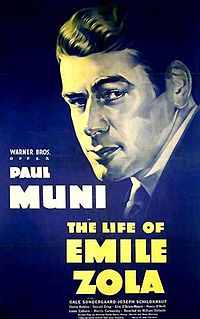
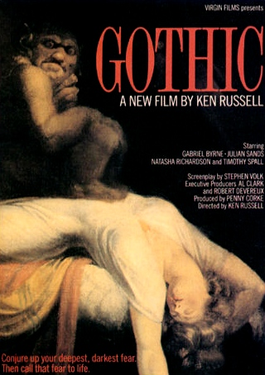

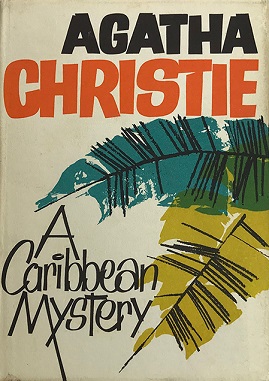
.JPG)




.jpg)




.jpg)
.jpg)


.JPG)








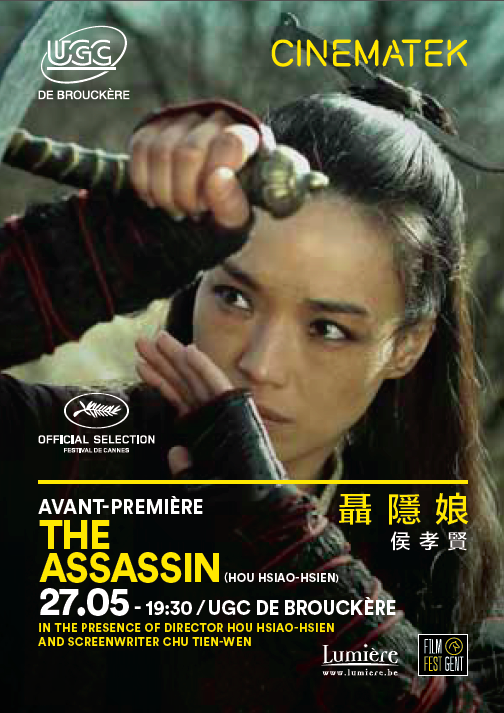
.JPG)




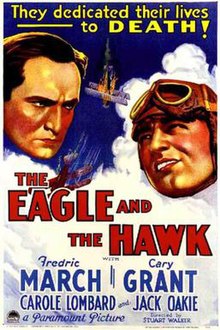
.JPG)



